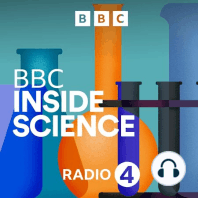28 min listen
Unavailable

Currently unavailable
Human Consciousness: Could a brain in a dish become sentient?
Currently unavailable
Human Consciousness: Could a brain in a dish become sentient?
ratings:
Length:
31 minutes
Released:
Apr 26, 2018
Format:
Podcast episode
Description
As the field of neuroscience advances, scientists are increasingly growing brain tissue to study conditions like autism, Alzheimer's and Zika virus. But could it become conscious? And if so, how far away is that scenario?
Wind, changing water temperatures and salt are all factors known to control ocean currents. But new research suggests there's another element in the mix. When sea monkeys amass, the thousands of swimming legs can create powerful currents that mix hundreds of meters of water.
Whenever a baby is born, we ask whether it's a girl or a boy. But when it comes to puppies, the question is often about the breed, especially with mongrels. And when we think we know what it is, we make assumptions about how that dog will behave. For instance, if you think there's some golden retriever parentage, you may expect it to be good at playing fetch. But do our perceptions of dog breeds change the way it behaves? That's the question of a new citizen science project called MuttMix, which asks you to guess the ancestry of various mongrels.
Finally, Charles Dickens is known as one of the best novelists of the Victorian era but a new exhibition is questioning whether he should be also known as a man of science. Dickens campaigned for paediatrics and his powers of description lead to a new conditions being medically recognised. The exhibition will be at the Charles Dickens Museum and it opens in May.
Wind, changing water temperatures and salt are all factors known to control ocean currents. But new research suggests there's another element in the mix. When sea monkeys amass, the thousands of swimming legs can create powerful currents that mix hundreds of meters of water.
Whenever a baby is born, we ask whether it's a girl or a boy. But when it comes to puppies, the question is often about the breed, especially with mongrels. And when we think we know what it is, we make assumptions about how that dog will behave. For instance, if you think there's some golden retriever parentage, you may expect it to be good at playing fetch. But do our perceptions of dog breeds change the way it behaves? That's the question of a new citizen science project called MuttMix, which asks you to guess the ancestry of various mongrels.
Finally, Charles Dickens is known as one of the best novelists of the Victorian era but a new exhibition is questioning whether he should be also known as a man of science. Dickens campaigned for paediatrics and his powers of description lead to a new conditions being medically recognised. The exhibition will be at the Charles Dickens Museum and it opens in May.
Released:
Apr 26, 2018
Format:
Podcast episode
Titles in the series (100)
Neanderthals; Plague; Wind Tunnel; Music Timing; Stem Cells: Adam Rutherford asks: What did the Neanderthals ever do for us? by BBC Inside Science